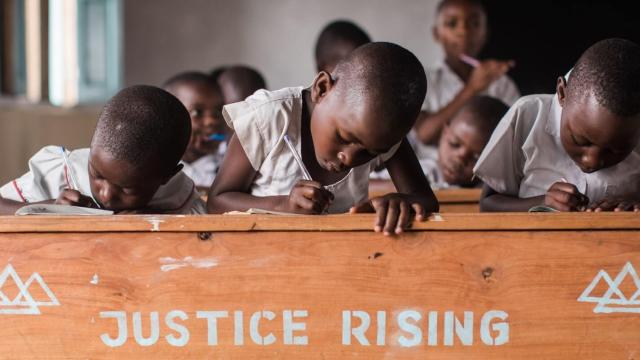Kavita Rajagopalan, GSF Programme Director, blogs on the innovative solutions emerging from GSF’s Challenge Track at the recent Jacobs Foundation Solveathon.
Over the past few years, there has been rapid growth in the non-state education sector across the world. Nearly one-quarter of all children globally now attend non-state schools, a sharp rise from a decade ago when the equivalent figure was just 15.1%. The COVID-19 pandemic has put a severe strain on the non-state sector and on low-cost private schools. But, despite these challenges, we have seen innovations spring up across the non-state sector, including many from our member organisations.
It was in this context that Global Schools Forum (GSF) joined the Jacobs Foundation and MIT Solve as a Challenge Partner for the Foundation’s Conference Solveathon – a three-day event through which teams could ideate, refine and pitch their solutions to an independent jury panel.
Our challenge to participating teams was simple – given the ongoing uncertainty due to COVID-19, how do we keep children learning? In some countries where our member organisations operate, schools have been closed for over 12 months. In others, children are experiencing intermittent school closures or following a staggered in-person schedule. In many of these countries, technology isn’t widespread, smart devices aren’t available, teachers are trying to keep up with the changes and parents are often unable to support learners at home.
We were, therefore, looking for teams to create scalable solutions for blended learning that would work in low-resource contexts. In developing and iterating their solutions, we asked teams to think through these questions:
- Would the solution be easy to use for learners, teachers and parents?
- Can the solution measure student learning progress?
- Will the solution be cost-efficient and easily deployed?
- Is it safe and secure for children to use?
- Can it be piloted, iterated and implemented quickly?
Four of our member organisations participated in the Solveathon to address this challenge. Here are the solutions that emerged from the process.
- Kizazi, with Teach For Armenia, created Aqunq to enable student learning and build resilient home environments by nurturing caregiver capacity through a blended and gamified innovation. A combination of in-person learning workshops and an easy-to-use mobile application will cater to the learning needs of families.
- Justice Rising’s solution to this challenge is a Structured Pedagogy tool for teachers to accelerate student learning, harnessing the ubiquity of the chalkboard, the radio and the basic mobile phone – it can be used in high, low and no tech contexts. The Chalkboard Guides (CBG) supports teachers to deliver high-quality learning that can withstand the toughest challenges including war, disease and weak infrastructure.
- Rising Academies developed RORI, a chatbot tutor powered by AI and sitting atop their unique library of structured curriculum content, which includes 500 hours of audio content covering language arts and math for five different age groups across K-12. Delivered via SMS or WhatsApp, so that all students can access it, Rori will be able to pull text and audio clips from this library, personalised to the learning needs of each individual student.
- New Globe’s pilot is a mobile quiz platform that offers access to thousands of 5-question quizzes via two-way SMS or WhatsApp. This solution provides high-quality, contextualised, curriculum-aligned practice opportunities for pupils through low-tech channels already in use among our parent communities. Rather than downloading a new app, parents and pupils can use the most popular global messaging tools (WhatsApp or SMS) in order to access hundreds of hours of interactive, engaging practice opportunities.
We are delighted to announce that Rising Academies’ Rori won the Grand Innovation Prize (worth up to CHF 200,000 in funding), New Globe’s solution was awarded the Promising Innovation Prize (up to CHF 50,000 in funding) and Justice Rising’s Chalkboard Guides won the Audience Prize (CHF 20,000 in funding). GSF congratulates all participating member organisations and wishes them luck as they pilot these solutions over the next few months.
To find out more about membership of Global Schools Forum, click here.

